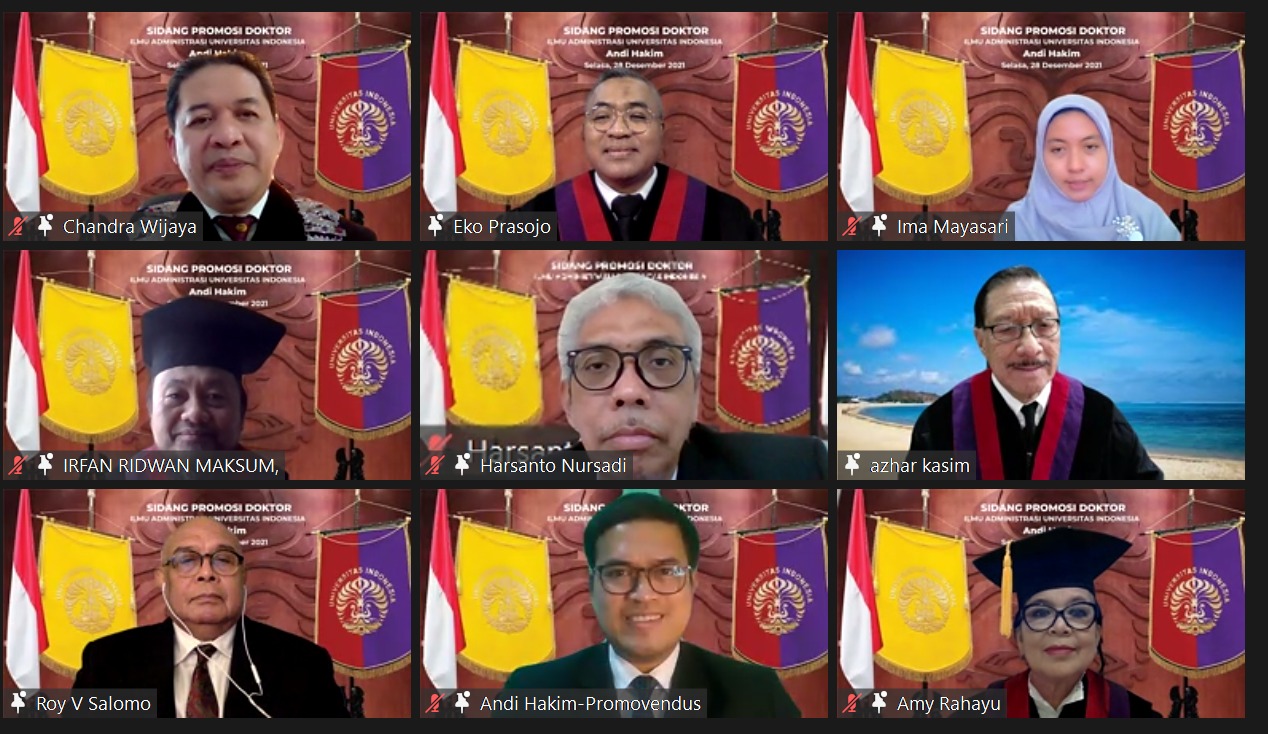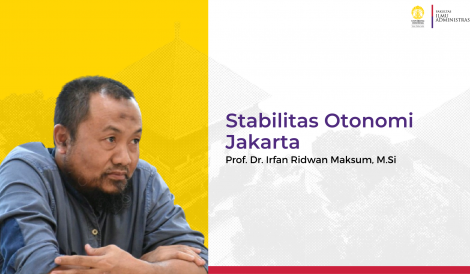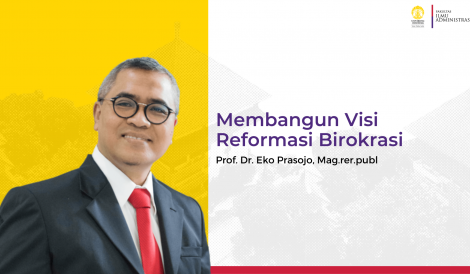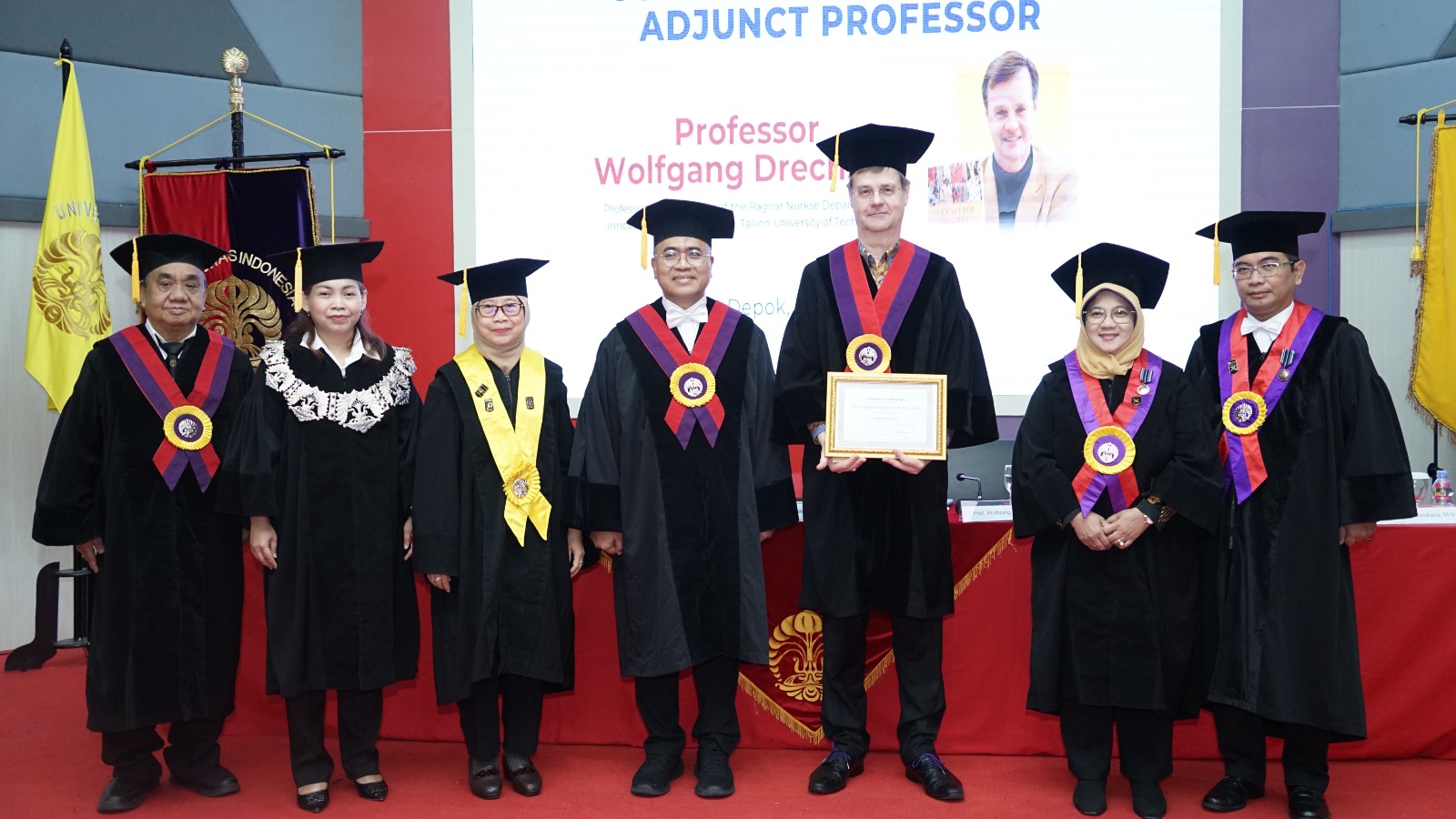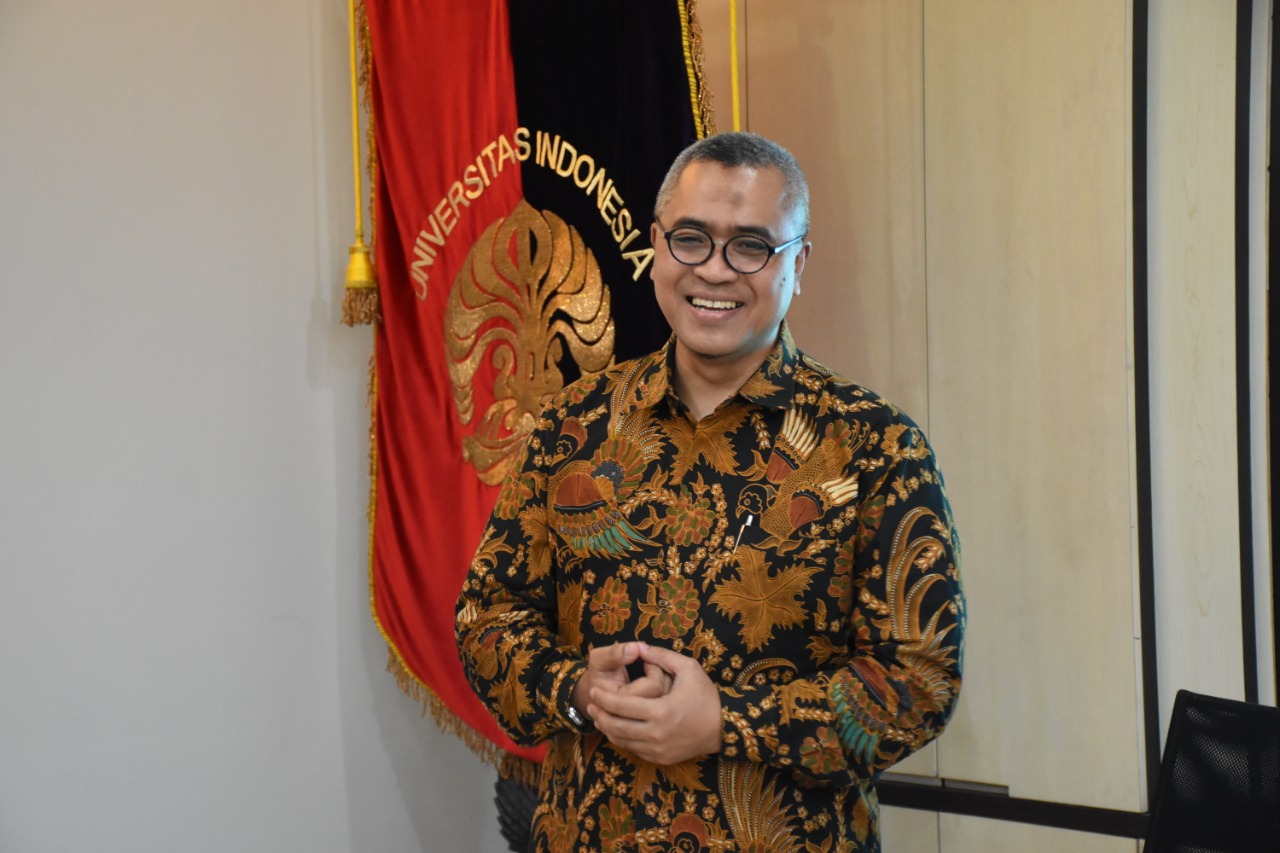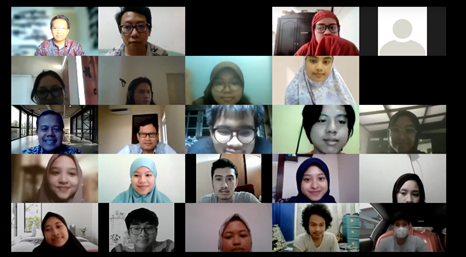The Constitutional Court (MK) as one of the actors of judicial power has an important role in efforts to uphold the constitution and the principles of the rule of law in accordance with its duties and authorities as stipulated in the 1945 Constitution of the Republic of Indonesia in Article 24C paragraph (1), one of which is Judicial Review. Therefore, in carrying out its strategic duties and authorities, it is very important for the Constitutional Court to implement the principles of Good Court Governance as the main judicial institution in handling cases.
The opening statement was delivered by Dr. Andi Hakim online at the doctoral promotion hearing in the field of Administrative Sciences for the Postgraduate Program, Faculty of Administrative Sciences, University of Indonesia, Tuesday (28/12).
Furthermore, Andi Hakim as Promovendus explained his initial research observations on the case handling system in the Constitutional Court and the researcher’s study of several external studies and documents related to the implementation of case handling at the Constitutional Court, it was found that factual problems indicate problems in the governance of the judiciary in the Constitutional Court or can be referred to as the phenomenon of judicial governance practices that are not in accordance with the principles of Good Court Governance. “These problems are related to the implementation of the principles of accountability, transparency, the rule of law, efficiency and effectiveness of implementation, the principle of certainty, conflicts of interest and ethical violations in handling cases in the Constitutional Court,” he said.
This condition was clarified by Promovendus, that the results of research from the United States University showed that problems with judicial institutions in 16 developing countries including Indonesia were still experiencing problems related to (1) public access to judicial institutions which was still limited; (2) the judicial administration system is not only slow but there are many massive corruption practices; (3) the low level of accountability or accountability of the judiciary, and (4) the low level of public trust in the judicial system.
“This is very relevant and important to conduct research on the Good Court Governance model to construct or build a Good Court Governance model in the Constitutional Court with a focus on the case handling process based on the perspective of Public Policy Science,” he said.
Promovendus explained that the results of the study showed that the implementation of the principles of Good Court Governance in the case handling system in the Constitutional Court with the variables of accountability, case procedures, case management, organization, development of case handling, and the support system in the Constitutional Court still had problems. The problems found were related to disparity in case handling time, organizational structure, procedural violations, inefficiency and ineffectiveness of the litigation process, weak supervisory institutions and less intensive supervision, regulation and arrangement of online-based case handling that have not been managed properly and the low level of use of judicial technology by the community. .
Furthermore, regarding the Good Court Governance model in the case handling system at the Constitutional Court, the results of the study show that the organization is a central factor in formulating, implementing, evaluating, and controlling the overall business process for handling cases. The central factor is influenced by other factors such as organizational accountability and transparency systems, regulatory systems, leadership, communication systems, and support systems (IT).
Dr. Andi Hakim then explained that in order to achieve an accountability and transparency system in handling cases, it was necessary to have a legal framework, case monitoring instruments, regulations and operational steps in making decisions and establishing an island of integrity.
“In the context of procedures and regulations, the Constitutional Court needs to design procedural law that is adaptive, dynamic and complies with the professionalism of Judges and Court employees to the rules of procedural law, as well as the participation of stakeholders in their preparation,” he explained.
In relation to leadership, leadership morals are needed, the role as the highest administrator, managerial functions, and the involvement of judges in the business process of handling cases at the Constitutional Court.
Furthermore, regarding the organization, it is necessary to have substantial and structural judicial independence, simplify the bureaucracy, balance the functions of supporting units in the Constitutional Court and strengthen managerial functions and the substance of case handling. Regarding the communication system, it is important to establish a Complementary Working System and balance aspects of openness and independence of the judiciary. Finally, regarding the support system (IT), it is necessary to increase access to justice and educate the public in the use of a technology-based justice system. “The things mentioned above are GCG models that need to be built in handling cases at the Constitutional Court,” he said.
It is known, also present as a promoter in this session Professor of FIA UI Prof. Dr. Eko Prasojo, Mag.rer.publ., as well as the co-promoter of Dr. Ima Mayasari, S.H., M.H,

